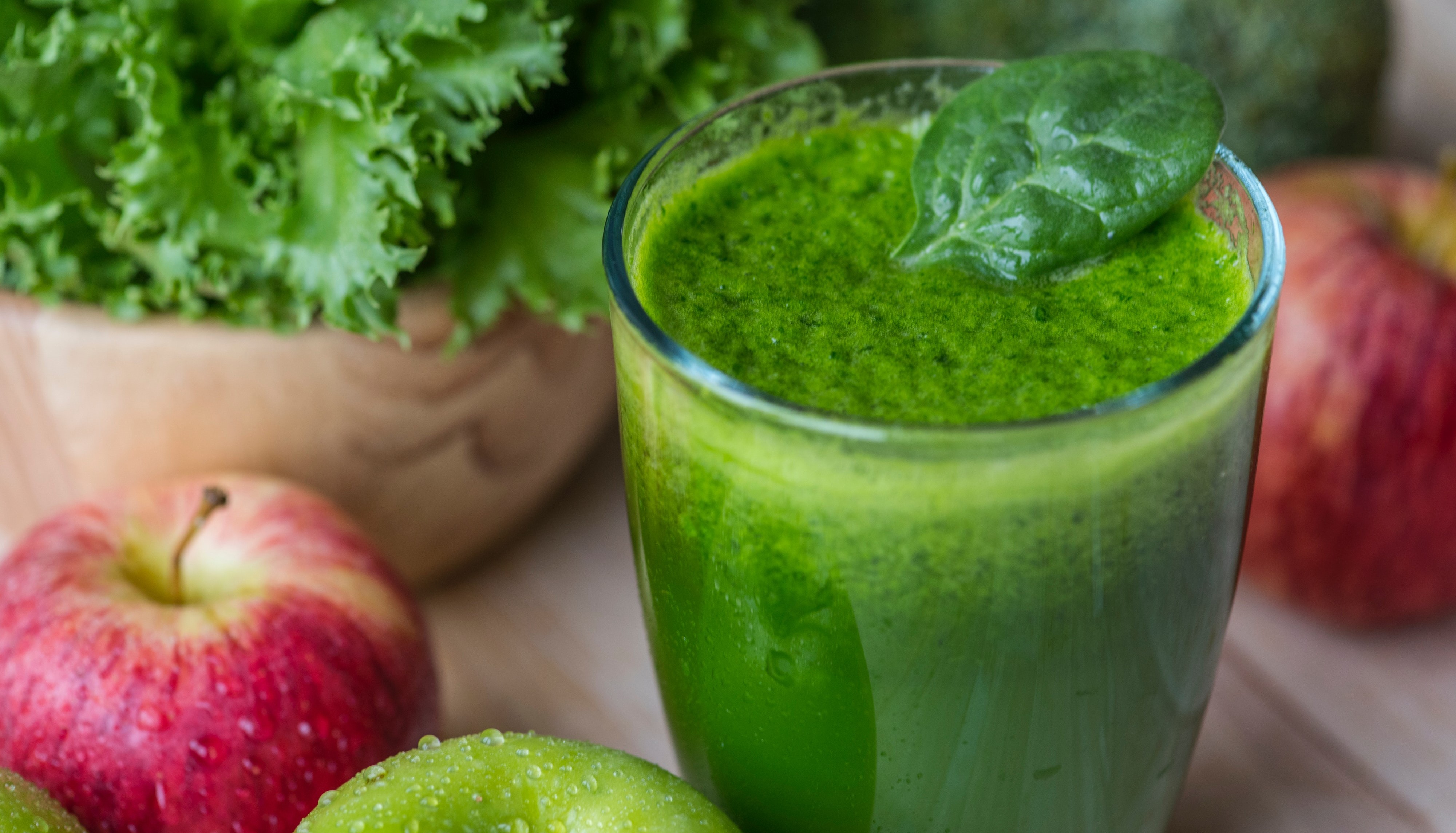I get asked this question all the time. What do you think of juicing? The short answer – it can play a beneficial role in any healthy eating plan if used properly. Drinking a nutritious juice every once in a while (even everyday) can be healthy, but it can also do more harm than good when it’s taken to the extreme. Consuming only juice for weeks is not the magic bullet proponents are claiming it to be; and it can be downright dangerous.
So, what is juicing exactly?
Juicing is a process that extracts water and nutrients from produce and removes most of the fiber. Advocates of juicing believe that without all the fiber, your digestive system doesn’t have to work as hard to break down the food and absorb the nutrients. Juicing is being heralded for weight loss, body detoxification, and the treatment and prevention of everything from the common cold to cancer.
Can juicing help me detox?
When it comes to detoxing by following a juice cleanse diet, there is no substantiated scientific evidence to affirm that the body needs an outside source to accomplish this. Our body does an excellent job of this on its own; our liver, kidneys, lungs, and intestines filter the unwanted toxins from our body and expel them through urine, bowel movements, breath and sweat. From a “cleansing” perspective, the most beneficial natural colon “cleanse” is actually dietary fiber. It is needed to produce regular bowel movements which remove waste and toxins from the body; in addition, fiber feeds the good bacteria in our gut that play an important role in keeping our immune system working properly. Unfortunately, most of it is stripped away during the process of juicing. Fiber offers other important health benefits as well. It provides satiety keeping us feeling full after eating, lowers cholesterol, and regulates blood sugar glucose. All of these benefits are missing from juice.
Will juicing help me lose weight?
Juicing can be part of healthy weight loss plan if done with care and common sense. Along with the carbohydrates and micronutrients from juice, you will need to include adequate protein and fat in order to have a nutritionally complete diet to keep your body functioning properly. Replacing all or most solid food with juice is not a good idea. Initially you will lose weight because you’re cutting out all the fat from your diet and drastically lowering your caloric intake. But you’ll most likely put it right back on when you start eating whole foods again.
Is eating whole fruits and vegetables better than juicing?
In general, eating whole fruits and vegetables is better than juicing. The healthiest diets include whole grains, lean sources of protein, healthy fats, and whole fruits and vegetables as well. For a person who needs 2,000 calories a day to maintain weight and health, the latest recommendation is to consume nine servings or 4½ – 5 cups per day (2 cups of fruit and 2½ – 3 cups of vegetables). However, if you find that you are not able to eat this much, then drinking your veggies and fruit in the form of a juice can be beneficial. And if you’re willing to replace your usual midmorning doughnut with a juice, it’s hard to argue against that.
What about a Smoothie?
Another (probably better) option – blend up a smoothie. Blending simply combines all the ingredients you place in your blender including the fiber. When trying to lose or maintain a healthy weight, smoothies can be used as a meal replacement or snack. Fruit and veggie smoothies can be a healthy addition to any eating plan as long as you maintain balance and portion control.
Click here to grab your tip sheet – Blend a Better Breakfast Smoothie.

Lorraine Matthews-Antosiewicz, MS, RD
If it’s finally time to start eating healthier, check out Nourished.Healthy.Happy. Join our group and receive healthy eating tips, delicious recipes, and daily support to live your best life. Everyone is welcome!


